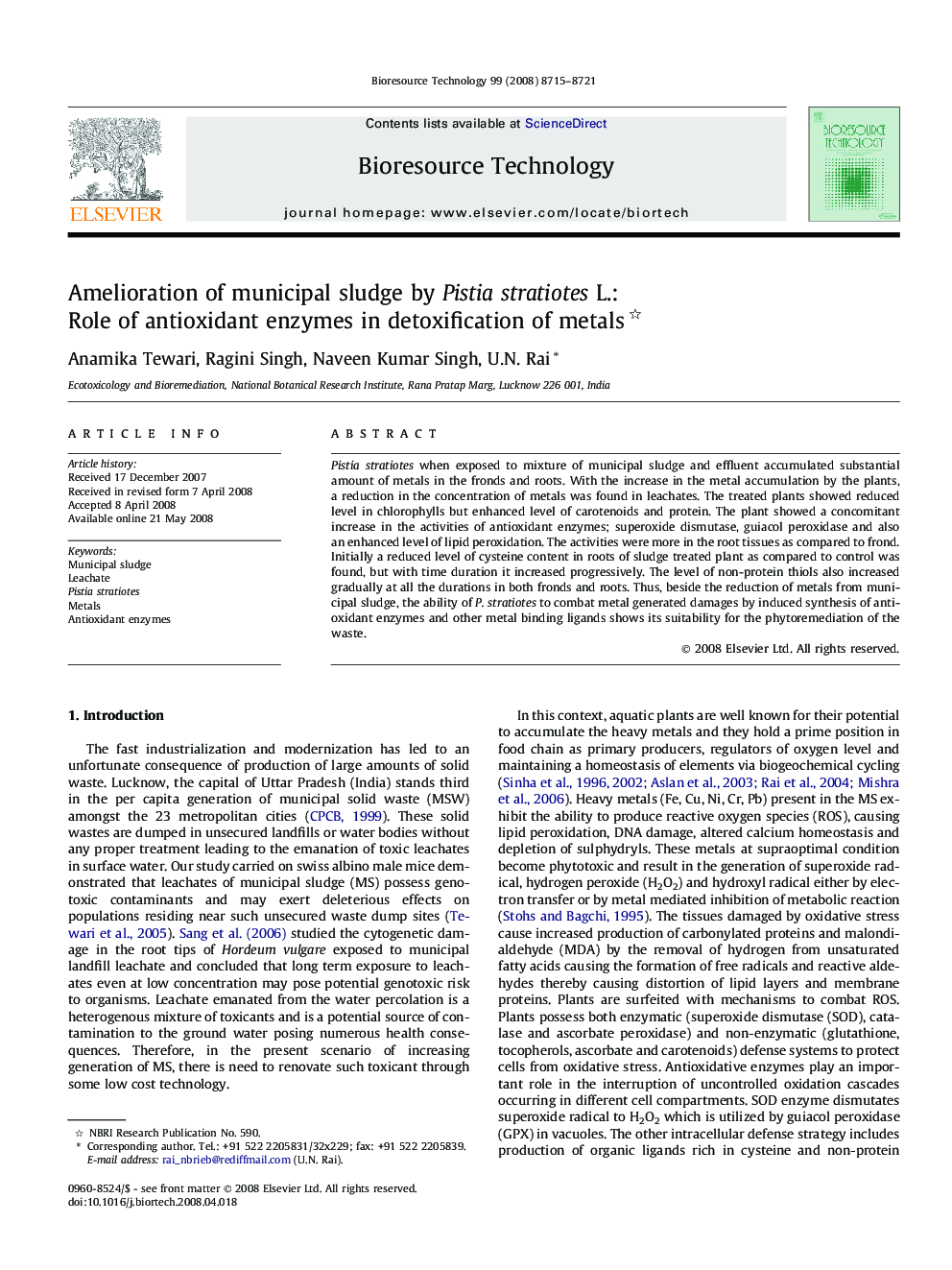| Article ID | Journal | Published Year | Pages | File Type |
|---|---|---|---|---|
| 684770 | Bioresource Technology | 2008 | 7 Pages |
Pistia stratiotes when exposed to mixture of municipal sludge and effluent accumulated substantial amount of metals in the fronds and roots. With the increase in the metal accumulation by the plants, a reduction in the concentration of metals was found in leachates. The treated plants showed reduced level in chlorophylls but enhanced level of carotenoids and protein. The plant showed a concomitant increase in the activities of antioxidant enzymes; superoxide dismutase, guiacol peroxidase and also an enhanced level of lipid peroxidation. The activities were more in the root tissues as compared to frond. Initially a reduced level of cysteine content in roots of sludge treated plant as compared to control was found, but with time duration it increased progressively. The level of non-protein thiols also increased gradually at all the durations in both fronds and roots. Thus, beside the reduction of metals from municipal sludge, the ability of P. stratiotes to combat metal generated damages by induced synthesis of antioxidant enzymes and other metal binding ligands shows its suitability for the phytoremediation of the waste.
